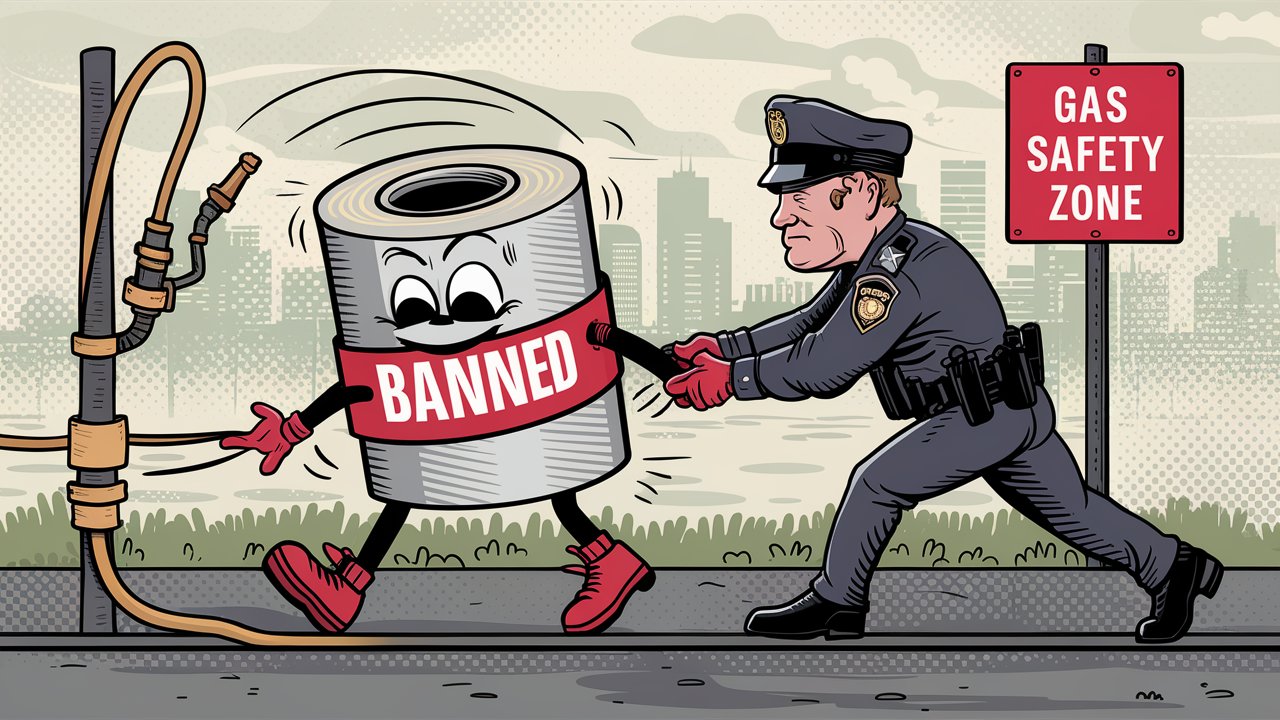Using Teflon tape on gas lines is generally discouraged due to safety and regulatory reasons. Teflon tape, also known as PTFE tape, can create several issues in gas line installations. For gas lines, it is recommended to use appropriate sealing methods to ensure safe and reliable connections.
The primary concerns with Teflon tape include its potential chemical reactions with natural gas, its role as a lubricant rather than a sealant, and the fact that it can degrade over time. Each of these factors contributes to why Teflon tape is not suitable for gas lines.
- Teflon Tape On Gas Lines Might Be Against The Code
- Teflon Tape Reacts With Natural Gas
- Teflon Tape Is Not A Sealant But A Lubricant
- Teflon Tape Shrinks And Dries Out Over Time
- Teflon Tape Can Shred And Enter Gas Line
1) Teflon Tape On Gas Lines Might Be Against The Code
In many jurisdictions, building codes and safety standards specifically prohibit the use of Teflon tape on gas lines. These codes are designed to ensure the safety and integrity of gas installations. Local codes may require the use of other approved sealing methods that are considered safer and more reliable for gas connections. Compliance with these codes is crucial to avoid potential safety hazards and to meet legal requirements.
2) Teflon Tape Reacts With Natural Gas
Teflon tape can react with natural gas in ways that compromise the safety of the gas line. The chemicals in natural gas can interact with the tape, potentially leading to degradation or chemical reactions that might affect the integrity of the gas line. This reaction can cause leaks or other issues that pose serious safety risks. For this reason, Teflon tape is not recommended for use in gas line applications.
3) Teflon Tape Is Not A Sealant But A Lubricant
Although Teflon tape is often used to seal threaded connections, it is primarily a lubricant rather than a sealant. Its primary function is to reduce friction between threads, which can help with assembly. However, it does not provide the same level of sealing capability required for gas lines. Effective sealing of gas lines requires materials specifically designed to create a gas-tight seal, which Teflon tape does not provide.
4) Teflon Tape Shrinks And Dries Out Over Time
Over time, Teflon tape can shrink and dry out, especially in the presence of heat or chemicals. This degradation can lead to gaps and leaks in the gas line connections, as the tape loses its ability to maintain a proper seal. Regular maintenance and inspection are required to address any potential issues, but using a more durable and suitable sealing material can prevent these problems from arising in the first place.
5) Teflon Tape Can Shred And Enter Gas Line
Teflon tape has the potential to shred or break apart over time, especially under the stress of gas pressure. If pieces of the tape break loose, they can enter the gas line and cause blockages or other issues. This can lead to dangerous situations such as reduced gas flow, pressure imbalances, or even complete blockages in the gas line. To avoid such risks, it is important to use sealing materials that do not pose these hazards.
What is Teflon Tape Commonly Used For?
Teflon tape is commonly used in plumbing applications to seal threaded pipe joints and connections that carry water or other non-flammable fluids. It is effective in preventing leaks in these contexts because it helps to lubricate the threads and create a tighter fit. However, due to its limitations and potential issues when used with gas lines, alternative materials are preferred for gas line installations.
What Kind Of Tape Do You Use For Gas Lines?
For gas lines, the materials are designed to handle the specific requirements of gas line connections and provide a secure seal that can withstand the conditions present in gas line systems. It is essential to use the appropriate materials to ensure the safety and effectiveness of gas installations. These include:
- Yellow Teflon Tapes (Dedicated For Gas Lines)
- Teflon-Bonded Silicone
- Valve Packing
- Engineered Silicone Formulations
- Pipe Sealing Cord
- Pipe Dope


